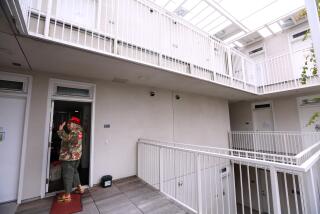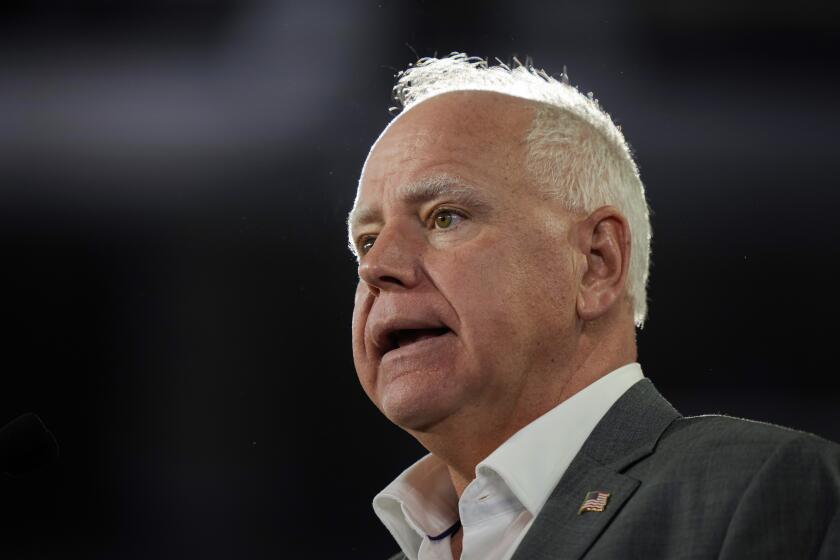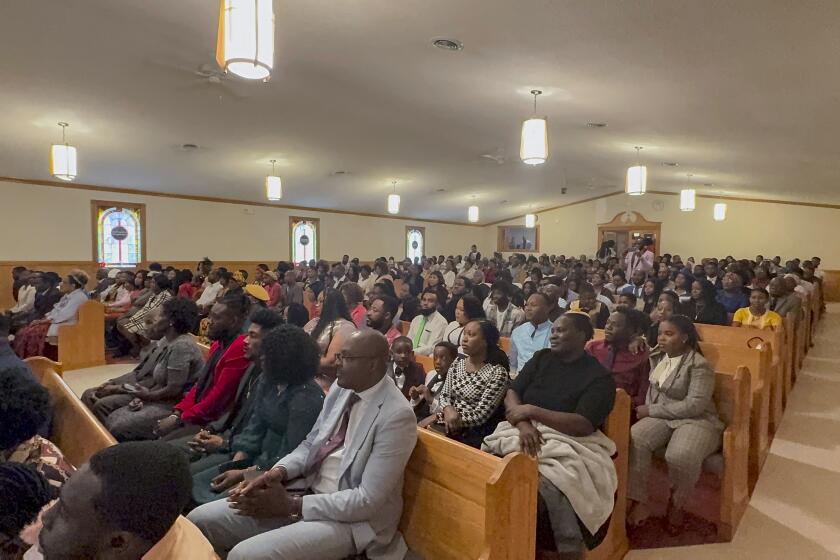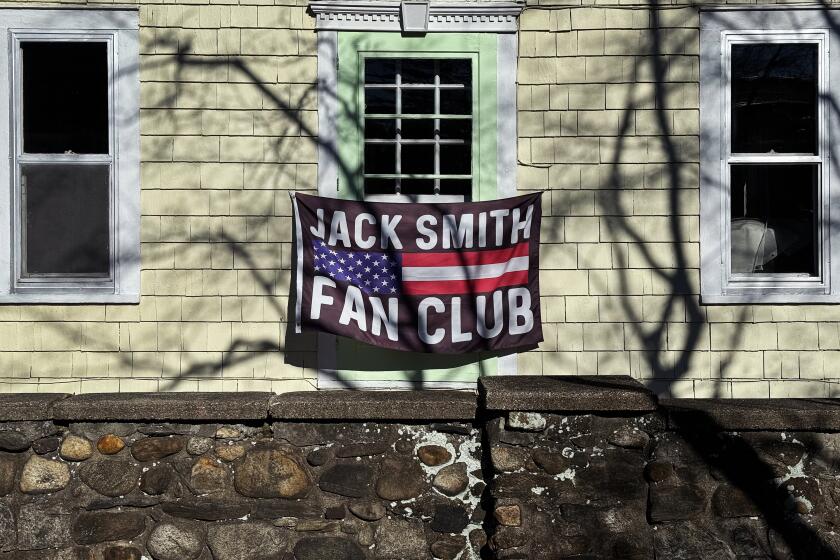Endorsement: Yes on Measure A. The county sales tax hike is essential to ease homelessness

Homelessness in Los Angeles County is tragic and complex, and solving it is a daunting task.
The only way to reduce homelessness is to provide housing and services that help people stabilize their lives. For nearly a decade, city and county leaders have been trying to do exactly that, thanks to voter support. In 2016, the city of Los Angeles passed Proposition HHH, a $1.2-billion bond measure, which is building a little over 8,600 units of homeless housing. And in 2017, county voters overwhelmingly passed Measure H, which added one-quarter of a cent to the sales tax to fund homeless services and rental assistance.
Did those measures solve homelessness? No. How could they possibly? L.A. County’s homelessness crisis was decades in the making, a result of the failure to build and preserve affordable housing, the decimation of the mental health care system, and a government unprepared and uninterested in helping people coming out of foster care, jails and prisons with no lifeline and no housing. It will take sustained effort and funding over time to reverse course.
From the top of the ticket to local ballot measures, California voters this year are grappling with major decisions that will shape their lives and communities for years to come.
But HHH is getting thousands of people off the streets in the city of L.A. and into housing while tens of thousands across the county have gotten services or rental subsidies through Measure H. There are 75,000 unhoused people in Los Angeles County, according to the last count — although for the first time since 2018, that number did not go up.
Measure A on the Nov. 5 ballot is the next step. It would replace H and raise the sales tax by a half-cent to pay for the housing and services that homeless people desperately need.
We strongly urge voters to support it.
Homelessness isn’t like the Northridge earthquake — a freeway breaks in half, you fix it and that’s it. Nor is homelessness just a problem that can be swept away — clear a sidewalk of encampments or RVs and the people vanish. They don’t. They just move to another street. Resolving homelessness takes a long-term investment.
Requiring two-thirds support to pass local taxes for parks, housing, transportation and other public investments is undemocratic. Proposition 5 would lower the threshold to pass a local bond measure to a more reasonable 55%.
Measure A would provide that investment. H currently generates about half a billion dollars a year, which makes up most of the money the county spends on homelessness, and it sunsets at the end of 2026. Measure A would repeal H early and replace it with a half-cent sales tax increase. (For most residents in the county, it would be as if one-quarter cent were added. For five cities that had already been at the maximum level for sales tax, a recent state bill allows their sales taxes to be raised above that cap for homelessness services.) Measure A would be a permanent tax unless it is repealed only by another ballot measure. It would generate about $1 billion a year.
Measure H did its job — and continues to do it. On any given day, H dollars can support more than 31,000 individuals and families getting services, such as mental health treatment, drug treatment and job counseling, while they are in interim and permanent housing, or getting rental subsidies. It also funds housing navigators who help people find permanent housing and programs, such as legal aid, eviction defense and utility and rental assistance, to help people avoid losing their homes. It also provides services for all the motels and hotels used in L.A. Mayor Karen Bass’ Inside Safe program.
If A is not passed and H goes away at the end of 2026, so do all those services. That means people lose temporary beds and rental subsidies. Homelessness would get worse.
New homeless numbers show a slight decrease in L.A.’s homeless population. The takeaway: Inside Safe and other efforts to house people are working.
So why not just extend H? Because Measure A will fund all the things H is funding, plus more. It will increase the amount of money spent on prevention services to keep people from becoming homeless.
Measure A will also pay to build, buy and preserve affordable housing, which H did not. About 35% of funds will go to the recently created Los Angeles County Affordable Housing Solutions Agency, which we strongly supported in 2022 as a more effective way to get affordable housing built across the entire county. At the time, we noted that the agency would seek voter support for a tax hike to fund housing development.
The measure is designed to improve upon H by setting measurable goals and adding two oversight bodies that guide spending. Among their duties will be to move funds from low-performing programs to high-performing programs.
In Sacramento, the problem has exploded from a few hundred “inebriates” in flophouses to thousands in tents and encampments. Democrats share the blame.
The fact that Measure A won’t have an expiration date will allow service providers to master-lease buildings for decades and allow for longer-term financing of affordable housing, which the county will need to keep building for decades to catch up with the housing shortage.
Nobody likes paying higher taxes, and certainly the sales tax is the most regressive of taxes. Measure A advocates estimate that the average household would pay an additional $5 a month.
While there are a lot of factors that go into a person becoming homeless, most are caught in a crippling vortex of poverty and unaffordable housing. If we don’t want more homeless people on sidewalks, we have to invest in proposals like Measure A that stand a chance of resolving this horrible problem.
More to Read
A cure for the common opinion
Get thought-provoking perspectives with our weekly newsletter.
You may occasionally receive promotional content from the Los Angeles Times.














